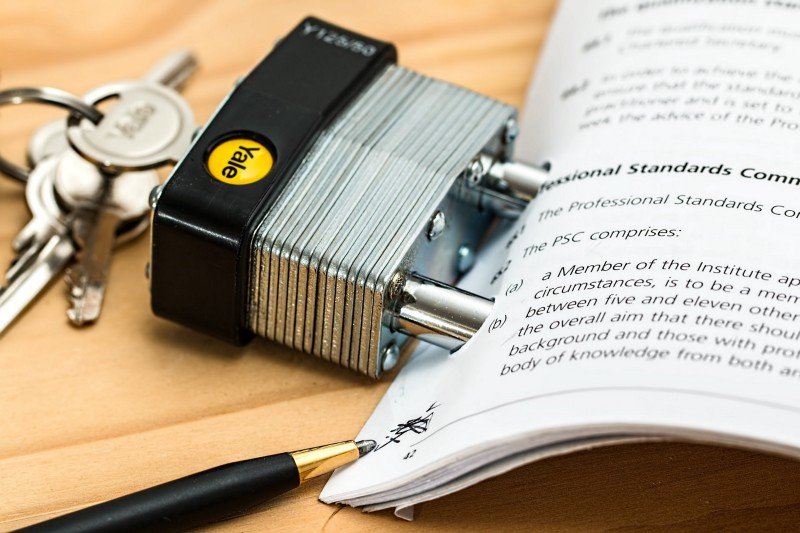
Freelancing is great. The hours are flexible, the work is interesting, and the attire is relaxed. But one of the perennial issues faced by freelancers across industries is the Non-Paying Client. For some reason, when a professional takes the leap from ‘office’ and ‘job’ to ‘freelancing’, ‘entrepreneurship’, and ‘self employment’, some clients hear ‘hobby’ and ‘freebie’ instead. Interestingly, the mental states freelancers experience when clients don’t pay up is very similar to the classic stages people generally go through in difficult times: Denial, Anger, Bargaining, and Depression. These would typically be followed by Acceptance, but we’re here to offer something better — Self Protection.
The Denial Stage goes something like: ‘Wait, have they not paid me? There must be some mistake’. So you check your bank accounts, go through your emails to make sure you actually did send the invoice, double check all the recipients, and confirm payment dates on your calendar — just to make sure you didn’t make any mistakes.
Once you’ve ascertained that it isn’t you, it’s them, the next stage is Anger: ‘I can not believe they haven’t paid me!’ This is usually a dangerous stage, where you’ll be tempted to write sarcastic emails, or make ranty phone calls, or maybe even pitch up at your client’s office to make a scene.
If you’ve managed to talk yourself down from all of the above (bravo to you for maintaining your professionalism), you might then go into Bargaining. This is when you consider lowering your price for the next gig (‘Perhaps I really did overprice that’), or sending your client ‘Have a nice day’ messages in the hopes that will spark some action.
Soon after Bargaining, Depression hits. This is when you question your entire life and career, and wonder why you bother at all: to work, to create, even to change out of PJs for the day. This is also a dangerous stage, and it’s at this stage that many freelancers throw in the towel, and go back to being someone’s employee.
At this point, psychologists would generally tout Acceptance as the last stage. We think that’s defeatist, and certainly won’t help you deal with unscrupulous clients in the future. So, may we present Self Protection instead. Some of these tips are precautions which you should take before payment becomes an issue, and some are ways to deal after.
1. Research your client

Find your client’s website, LinkedIn, even Facebook, to make sure they’re a legitimate business, or a decent person. If anything seems fishy, don’t work with them. Most importantly, see if you have common contacts who can give you the low-down. If you know other freelancers, see if anyone has done work for the client. If you know anyone who knows the client on a social basis, ask them for their opinion. On Kalido, we show our users common contacts exactly for this purpose — so that you can vet a potential client through trusted contacts before working with them.
2. Try to work with people you have some sort of trust-based connection with

At Kalido, we value trust above all else, and always try to match users with someone who has common contacts, networks, or at the very least shared interests. We believe that having points of commonality creates rapport, and having shared contacts means you can get an opinion from someone you trust. Your profile is also visible to your client, because the more they know about you, the more they’ll see you as a person, not just as a service provider. This goes a long way to ensuring that they treat you fairly, which includes paying you.
3. Always have things in writing

Many of us hate Ts and Cs, and the thought of drafting, or even reading a contract feels like death. But the problem with Gentlemen’s Agreements is that the other party might not be one. So, check out this 2-part post we wrote on how to protect yourself, even without a lawyer.
4. Don’t do anything before a deposit has been paid

Always get an upfront deposit. Always. When you’re new to freelancing, it’s often tempting to go on trust, especially when you don’t have many clients and you’re trying to make a name for yourself. But at the risk of seeming ‘stingy’ or ‘desperate’ (neither of which are true, as deposits are completely professional and standard practice), you should always ask the client to commit something, before you commit everything. Most freelancers request a 50% deposit upfront, and the balance on delivery of the work. If your client refuses to put down a deposit, or is unreasonably slow in effecting payment, that’s a very bad sign.
5) Never get sarcastic or unprofessional

Even though it feels like the only reason a client hasn’t paid is that they’re rotten human beings, there are sometimes perfectly reasonable and legitimate reasons for late payment. Many large companies have multiple layers of bureaucracy, and between one person leaving early for lunch, another being on leave, and people being busy and disorganised, your invoice may just have gotten lost in the muddle. Many companies also make payments at the end of each month, not when invoices are presented. Don’t immediately jump to the conclusion that a late payment is a non-payment. Always stay professional, and don’t lose your temper.
6) Give regular, firm reminders

Depending on how late the payment is, you can send a reminder every week, or possibly every day. Our rule of thumb is: the later the payment, the more frequent the reminder. So, if the payment is only a week late, send a reminder next week. If the payment is already a month late, graduate to daily reminders. Also, it’s polite to start with email reminders, as a gentle nudge. If these don’t get a response, escalate to phone calls. In the most extreme cases, and if practical, make an appointment to see the person responsible.
7) Speak to multiple people in the organisation

Sometimes you’ll be dealing with an account manager. If that person isn’t being helpful, ask reception to pass you on to the accounting department. If the accounting department isn’t playing ball, ask for management. If management doesn’t sort the issue out, CC everyone you’ve spoken to on every mail, and repeat as necessary. It’s rare that an entire organisation is in cahoots about swindelling people. Often, the blockage is just an oversight or incompetence on the part of one person. Having multiple people involved increases the chances that someone will deal with it.
8) Offer alternatives

Sometimes a client may want to pay, but legitimately be unable to. You can offer alternatives to full payment all in one go. Perhaps the client can pay smaller amounts periodically? Perhaps they can offer you some sort of quid pro quo e.g. let you print business cards on their office printer in return for X hours of your work, or give you free meals for a month if they’re a café that you designed a logo for. Sure, first prize is to get the cold hard cash, but in the meantime, you might be able to get small wins first.
9) Stop working

If the project specifies stages of deliverables, you can withhold the next installment of work until the last installment of payment has cleared. This is also true for new projects. If the client hasn’t paid up for a previous project, on no account should you agree to work on a new one.
10) Get third parties involved

This is always the last step we recommend, because once third parties get involved, the client relationship is often damaged and your chances of working together again become slimmer. Of course, you might not want to work with that client again, but always think very carefully before burning bridges. Third parties could be as benign as a common contact who gently reminds the client to pay up, in the guise of an enquiry on how the project is going. Or it could be as serious as a lawyer or debt collection agency. Weigh up the costs (both financial and psychological) of each option against the benefit (the amount actually owed) before proceeding with this step.
Non-paying clients are one of the most common bugbears of the freelancing world. But if you’re careful, and rigorously apply the principles of Self Protection we prescribe (not least of which is matching and working with trusted people through Kalido), you’ll hopefully rarely, or never, encounter this problem. Good luck!

